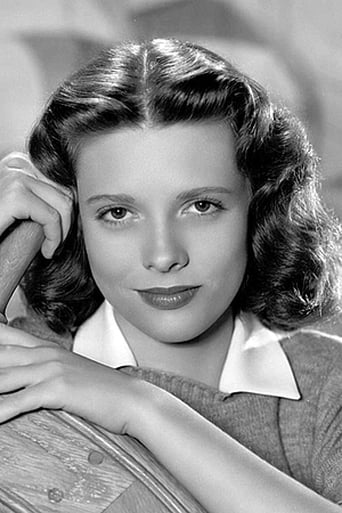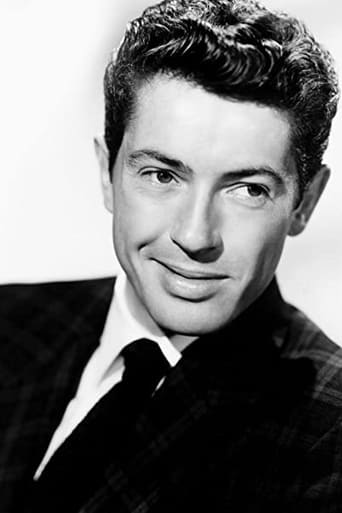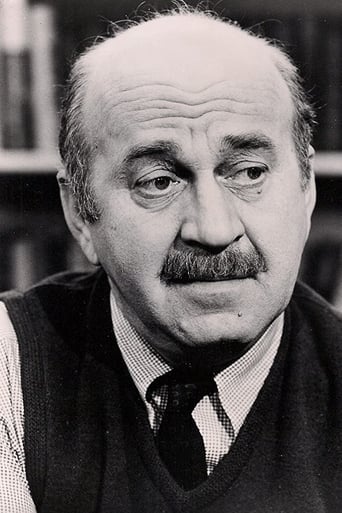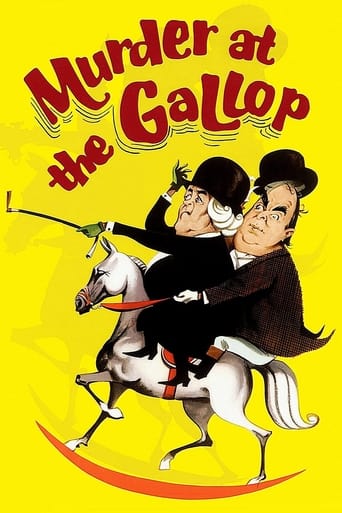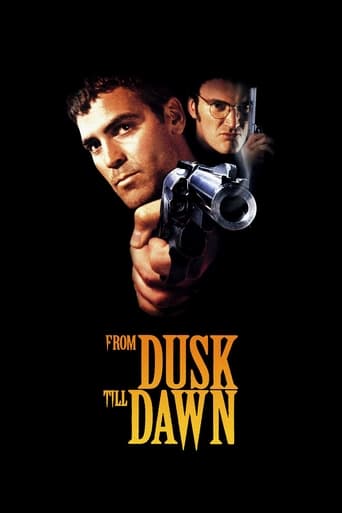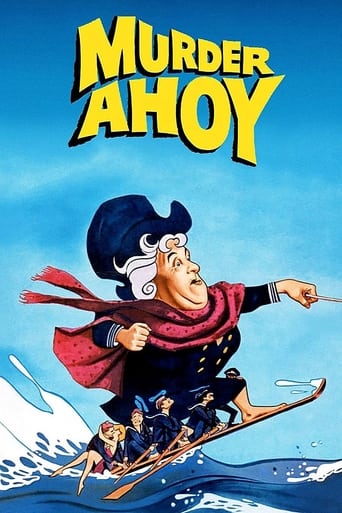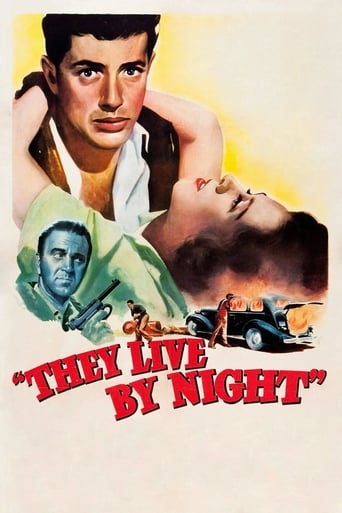

They Live by Night (1949)
An escaped convict, injured during a robbery, falls in love with the woman who nurses him back to health, but their relationship seems doomed from the beginning.
Watch Trailer
Cast


Similar titles
Reviews
With an ominous-sounding title like "They Live By Night" one would almost expect there to be at least a couple of vampires in this film's story. But, nope - This isn't the case here.This tough, little 1948 picture mainly focused in on the (often) "laughably-cute" romance that blossomed between Bowie and Keechie who became "lovers-on-the-run" with nowhere to go.In the very moment when Bowie and Keechie first met it became plainly obvious that (due to external circumstances) these 2 love-birds would never find happiness together. Ever.All-in-all - This low-budget, b&w, crime/drama did have its entertaining moments.This would be movie-maker, Nicholas Ray's first feature film. He would go on to direct "Rebel Without A Cause" in 1955.
In Nicholas Ray's seminal crime drama They Live by Night, injured bank robber Bowie (Farley Granger) falls for the independent young rancher's daughter Keechie (Cathy O'Donnell), and the two use Bowie's ill-gotten gains to distance themselves from the authorities and the rest of Bowie's gang.Bowie is the gang's wheelman, and when he's injured during a getaway, it's his newfound companion Keechie who gets to nurse him back to health while the others - Chickamaw (Howard da Silva) and T-Dub (Jay C. Flippen) - make themselves scarce. Keechie doesn't think much of her patient and his lifestyle. And make no mistake, Bowie feels little shame in his role, which has included murder. No bright-eyed neophyte, he. But there's something about Keechie, her deliberate movements, her slinky smile, that really appeals to Bowie, and the two slowly fall for each other.The first shot by Ray (in his directorial debut) is an early helicopter angle, as the bad boys speed down a rural road as they escape from jail. In fact, it's the first helicopter action shot, as previous uses of the vehicle were simply to shoot landscapes to set a scene. In any event, a tire is blown and the gang heads toward a farmhouse, where they meet farmer Mobley (Will Wright) and his daughter Keechie. There's chemistry just dripping between Granger and O'Donnell; both seem more naive than they truly are, and although each pretends to dislike the other, it's not long before them old hormones come a-knocking, although not too much, because this is 1948, after all, and the movie's set some 15 years earlier. On the run they go! Ray's first feature is strikingly shot. Aside from that iconic opening helicopter shot, there's also a great little scene of the gang pulling off a job - from Bowie's perspective as the driver. A bystander tries to engage Bowie in conversation just as T-Dub and Chickamaw run out of the building, earning him a rough shove to the face. That's noir film for you. Watch your face! O'Donnell and Granger work very well together (no surprise, since the latter recommended the former for the role), although I think most of the appeal comes from O'Donnell, who turns in a graceful, passionate, and unique performance as the trusting Keechie. Granger, appearing in only his third film (with Rope on the horizon) was never really that good of an actor, and so many of his lines are delivered in an almost nonchalant monotone that you wonder if some lessons weren't in his immediate future. At least no one can accuse him of hamming it up.And do you know who produced this masterpiece? None other than the great John Houseman, who most of us remember from his old Smith-Barney commercials but who was also one of Orson Welles' Mercury Theatre performers back in the day. The man knew talent, and he picked Nicholas Ray to direct without input from the studio. It's to Houseman's credit that the movie's as good as it is - which is to say, a true noir classic. There may not be a Bonnie and Clyde ending, but we're not talking about a Disney finale, either. Bonus cameo - the jeweler who sells Bowie a watch is played by none other than Will Lee. Yes, the same Will Lee who would go on to play Mr. Hooper on Sesame Street.
Nicholas Ray directed this innovative film noir that stars Farley Granger as Bowie, a young man recently escaped from prison with two older convicts(played by Jay C. Flippen & Howard Da Silva) All Bowie wants is to live with his love Keechie(played by Cathy O'Donnell) but his two cohorts won't let him, forcing him on a multi-state crime spree that mistakenly leads the police to identify Bowie as the ringleader! Bowie becomes increasingly alarmed, and is determined to break away from his criminal "friends", but first must figure out how to do so, and not get captured or killed. Good cast and effective direction(an opening helicopter tracking shot in particular) make this film work well, even if it ends as you would expect it too.
Nicholas Ray's first feature film is the prototype for the lovers on the lam genre, generally suggested to foreshadow Arthur Penn's Bonnie and Clyde. I enjoy it for different reasons that for the more contemporary ones. It may not be as intense as those, nor as intense as some of Ray's later efforts such as the unadorned masterpiece In a Lonely Place, but we sympathize on a much purer level with Farley Granger and Cathy O'Donnell's young lovers here than we do with Bonnie and Clyde or the violent lovers of Gun Crazy or much more extreme and shocking variations on that assembly line like Natural Born Killers, Criminal Lovers or Baise Moi. Granger and O'Donnell, two young specimens whose beautiful faces radiate with solemn innocence, find the seeds of love in their first incidental meetings with one another in spite of their cataclysmic circumstances and dangerous dynamics. Indeed, the film is in no small part owing to the argument of heredity vs. environment, which one bears in mind throughout as we not only follow the external plot but also the emotional process of the chemistry between the two leads.Perhaps the movie doesn't take enough chances with Granger's circumstances. He escapes from prison with two hardened down-home bank robbers Chicamaw and T-Dub, but rather than being a part of their underworld economy, though he does find himself planning a heist with them to, in a strange, roundabout way, bring justice to his initial imprisonment, he is fleeing the condemnation of an unjust murder charge. This flaw cannot be argued as a bedrock but if he were a young, budding career thief himself, the audience's sense of morality and justice would be given more vigorous exercise. It would make O'Donnell's love for him ironically more ennobled by not only siding with him against the way the world has treated him, but also by seeing through the way he has treated the world.I was enthralled by the physicality of the two lovers, stressed by Ray in unusual ways. We first see the angelic Cathy O'Donnell in a baggy, oil-stained jumpsuit. She is the daughter of a gas station owner. Her beauty either radiates through the adventitious scuzziness, inherits a raw carnal edge by it, or both. Granger is a swarthy young boy, his anger perpetuated by his submissiveness in his situations, against which he gradually begins to recklessly rebel. Much in the same way we can see Gloria Grahame and Humphrey Bogart baring their most guileless identities, almost too painfully, in the great film Ray made the next year, In a Lonely Place, Granger and O'Donnell are a younger and more socially subversive precursor. Though the story itself may not sizzle with more tension, we feel very deeply for the two lovers based on the sheer presence of their actors.


